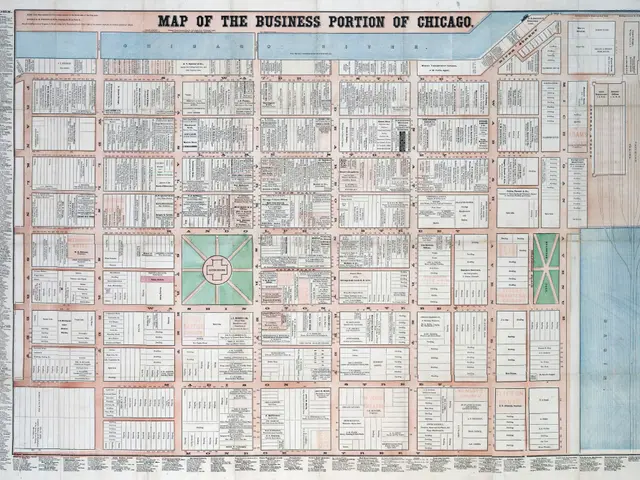Trump-Zelensky Meeting Leaves Zelensky Nervous; Tusk Offers Comfort and Support
Following a tense encounter between Ukrainian President Volodymyr Zelensky and U.S. President Donald Trump, Poland's prime minister, Donald Tusk, extended a message of solidarity to the Ukrainian leader. The White House meeting intended to strengthen agreements on vital mineral resources ended abruptly, without a signed deal, due to a heated disagreement.
Tusk took to social media, posting: "Dear Volodymyr Zelensky, dear Ukrainian friends, you are not alone." This statement signified Poland's persistent backing for Ukraine amidst the disputes.
Zelensky's visit to the White House aimed to secure concrete commitments from the U.S. on military and economic aid, but the meeting quickly escalated into a contentious exchange. Trump reportedly accused Zelensky of disrespect, warning that his actions could potentially incite a third world war. Additionally, Trump implied that continued U.S. support for Ukraine was contingent on Zelensky making concessions to Russian President Vladimir Putin.
Trump's remarks to Zelensky were met with strong reactions from European leaders. Polish Speaker of Parliament Szymon Hołownia praised Ukraine's resilience, while French President Emmanuel Macron stressed that "Russia is the aggressor, and Ukraine is the victim." German political figures, including CDU leader Friedrich Merz and Foreign Minister Annalena Baerbock, reaffirmed their support for Ukraine.
Reports suggest that Poland has been a staunch ally of Ukraine since Russia's invasion in 2022, providing military assistance and serving as a key transit hub for Western arms shipments. As tensions arise concerning future U.S. commitments to Ukraine, European leaders, including Poland's Prime Minister Donald Tusk, appear committed to filling any potential void in support left by shifting American foreign policy.
Trump's comments during the meeting reflected his skepticism about U.S. military involvement in Ukraine, hinting at his readiness to negotiate a settlement with Russia if re-elected. Trump and Zelensky reportedly exchanged accusations throughout the discussion, with Zelensky reminding Trump that Putin had broken international agreements several times. Trump countered by suggesting that he could manage Russia better than previous U.S. administrations.
The fallout from the meeting elicited sharp reactions from Moscow. Former Russian President Dmitry Medvedev mocked Zelensky and praised Trump's remarks, calling Zelensky a "cocaine clown" and suggesting that the U.S. should cease military aid to Kyiv.
- Tensions between Zelensky and Trump highlight the complexities of policy-and-legislation surrounding war-and-conflicts, particularly in the context of Ukraine.
- The unexpected turn of events during the White House meeting underscores the sensitivity of politics and international relations, especially regarding issue of crucial mineral resources.
- To counterbalance Trump's stance, European leaders such as Poland's Prime Minister Donald Tusk and other key figures have vocalized their commitment to supporting Ukraine in its ongoing struggles, a position that reflects European politics and general-news.
- The heated exchange between Trump and Zelensky has revealed the potential impact of abrupt changes in car-accidents in foreign policy, as continued U.S. support for Ukraine seems contingent on certain compromise with Russia.
- As the global community watches the unfolding events closely, the cultural significance of this conflict becomes evident, shedding light on broader issues such as crime-and-justice and accommodation of opposing interests.
- In the realm of technology and AI, the meeting may influence the future of space exploration and cooperation, as potential shifts in U.S. foreign policy could affect international relations.
- Amidst the mounting tensions, focus also shifts towards sports and sports-betting, as world leaders' decisions may indirectly impact these industries.
- In light of the ongoing standoff and polarizing remarks made by leaders on both sides, concerns regarding accidents, fires, and potential war-and-conflicts remain high on the global agenda.








